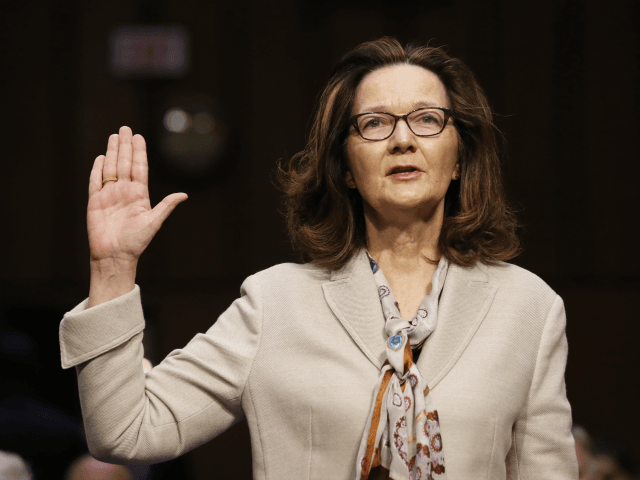Nominee for CIA Director, Gina Haspel pledged to never restart a CIA interrogations program as she sat before a panel of Senators grilling her in Senate Intelligence Committee confirmation hearings on Wednesday.
Haspel firmly committed that under her leadership the CIA “will not restart” coercive CIA interrogation programs that have come under harsh criticism.
“Having served in that tumultuous time, I can offer you my personal commitment, clearly and without reservation, that under my leadership, on my watch, CIA will not restart such a detention and interrogation program,” Haspel told the members of the committee, speaking of the time shortly after the September 11, 2001 terror attacks on the United States.
She stressed that she was not in a supervisory role at the “tumultuous time” when the coercive CIA interrogation techniques were put in to place and wasn’t read in to the program until after it had been put in to place.
She repeatedly referred to following the guidelines of the Army Field Manual which informed the Department of Defense policies on interrogation. She said there are other government branches suited to conduct interrogations and that is not the CIA.
“CIA does not today conduct interrogations, we never did historically and we’re not getting back in that business,” Haspel later reaffirmed.
“I would never allow CIA to be involved in coercive interrogations,” Haspel said, emphasizing holding “ourselves to a stricter moral standard.”
Asked about tapes of interrogations in 2005 that were destroyed, she made clear that the issue with the tapes was the risk that intelligence officers’ faces would be exposed to enemies.
Pressed on whether the tapes could have been digitized and faces blacked out, Haspel made clear that the concern was not that they worried about official release of any tapes. Rather, this came at a time “when the entire program was the subject of unauthorized leaks and someone was found guilty of those unauthorized leaks so the concern was an irresponsible leaks of our officers’ faces to the world, not an official release.”
Haspel said that because of the risk posed to intelligence officers shown on the tapes, she was an advocate for destroying them so long as it was legal to do so.
The committee began Tuesday morning’s hearing in open session, but will shift to a closed session in the afternoon in order to discuss classified information.
Follow Michelle Moons on Twitter @MichelleDiana

COMMENTS
Please let us know if you're having issues with commenting.